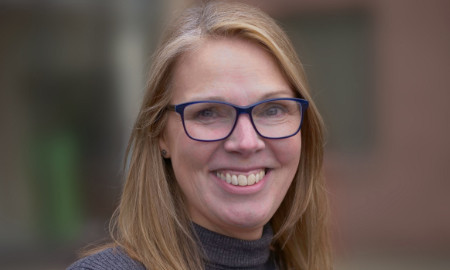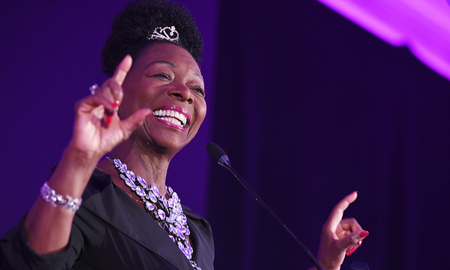Sign up for our free daily newsletter
YOUR PRIVACY - PLEASE READ CAREFULLY DATA PROTECTION STATEMENT
Below we explain how we will communicate with you. We set out how we use your data in our Privacy Policy.
Global City Media, and its associated brands will use the lawful basis of legitimate interests to use
the
contact details you have supplied to contact you regarding our publications, events, training,
reader
research, and other relevant information. We will always give you the option to opt out of our
marketing.
By clicking submit, you confirm that you understand and accept the Terms & Conditions and Privacy Policy
When I started my role at Moore Barlow three years ago, I was excited to work in the legal sector, but just six months in, I started to feel massive imposter syndrome. My concentration, focus, memory and sleep all began to change suddenly, and I stopped contributing to meetings in case I forgot what I would say.
I started having high and low, dark moods. I regularly hid in the toilet, berating myself for being useless and feeling shame walking back into the office, my internal critical voice in overdrive. I wanted to make a good start at the firm, but instead, I felt like a failure in the workplace and that my career may be over. My relationship with my husband was strained, and parenting my six-year-old son became more challenging. I couldn’t work out what was happening to me.
I never thought it was anything due to my age, while my friends and I didn’t discuss the menopause at that time. Eventually, I watched Davina McCall’s programme on menopause, and I realised that every symptom she mentioned, I had experienced too.
After this, I became very open with Katherine, my line manager, who listened, acknowledged and separated my symptoms from reality, which made me feel entirely supported and put things into perspective. I was encouraged to go on an external six-week programme that helped me to understand menopause and how to manage the symptoms. It was life-changing. I felt in control, understood what was happening to me, and no longer felt alone.
That conversation with my line manager changed everything for me. The legal profession, by nature, is highly pressured, and it has a substantial female demographic; at Moore Barlow, 76% of us are women, and of these, 69% are over 35 years; perimenopause usually starts around 40, so that is a considerable number of women affected. Moore Barlow has four levels of support for those who need it; the firm is passionate about supporting everyone.
Not everyone is so lucky; in a 2023 survey conducted by the CIPD, which looked at 2,000 women aged 40 to 60 employed in the UK, slightly more than two in three (67%) menopausal women were negatively affected at work.
Almost one in six women aged 40 to 60 in the UK have considered leaving their jobs because of a lack of support with menopausal symptoms. More than one in 10 women said they feel discriminated against because of their menopausal symptoms.
In March 2023, the government confirmed that it would not introduce menopause as a new protected characteristic under the Equality Act 2010, as it was considered that the existing protected characteristics provided adequate protection against discrimination caused by menopause.
Increasingly, we have seen menopause-related claims successfully being brought to the Employment Tribunal. It seems that the legal framework appears to have progressively developed to provide protection for those suffering unlawful treatment by employers for reasons connected to menopause.
But for change to happen at work, support for women experiencing menopause has to be embedded into workplace culture. If women feel pressure to leave the legal industry because of a lack of support, that to me is a failure, particularly when those women are the most experienced they have ever been.
Line managers don’t need to become experts in menopause, but with proper development, they can create a safe space to understand each individual’s needs. Everyone’s journey is unique, but having the conversation and knowing where to get support can be life-changing.
People don’t go from brilliant to struggling overnight; the more we talk about menopause, the more we make it acceptable for others to get the support they need to thrive in their careers.
Sarah Andrews is head of organisational development at Moore Barlow.
Email your news and story ideas to: [email protected]











